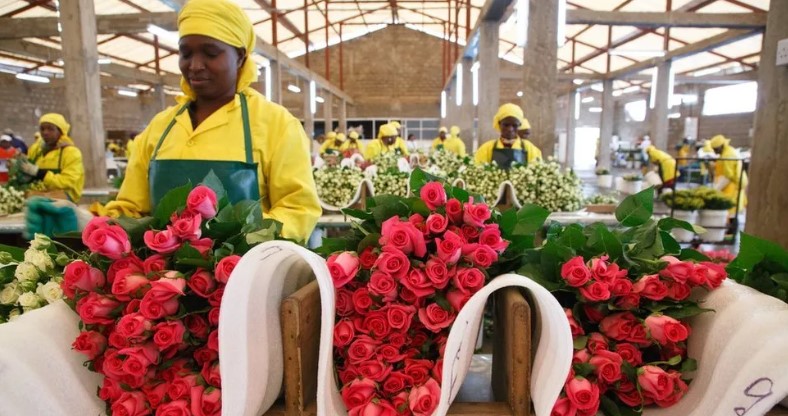Freight bottlenecks, cargo crisis shave Sh1.4 billion off Kenya’s flower sector

According to the Agriculture and Food Authority (AFA), total flower exports fell by 12 per cent from 116,273 tonnes in 2024, translating to a Sh72.1 billion loss in export value.
Kenya’s flower sector struggled last year as global freight shifts and airport congestion at Jomo Kenyatta International Airport (JKIA) squeezed exporters, cutting earnings by Sh1.4 billion.
According to the Agriculture and Food Authority (AFA), total flower exports fell by 12 per cent from 116,273 tonnes in 2024, translating to a Sh72.1 billion loss in export value.
More To Read
- Kenya sees major boost from visa-free policy as tourist numbers hit 1.8 million
- AFA orders macadamia traders to declare stocks ahead of harvest ban
- Kenya Airways staff jailed for 25 years for trafficking heroin
- Somalia miraa market shrinks sharply as Kenya’s exports drop by 17 per cent
- Tender wars at JKIA threaten security and protocol standards, court petition reveals
- Murkomen defends police over JKIA breach, says situation could have turned tragic
“The corresponding export value dropped by Sh 1.4 billion, primarily due to a combination of logistical and regulatory challenges,” the authority said.
“One of the major contributing factors was the cargo crisis at Jomo Kenyatta International Airport (JKIA), exacerbated by the ongoing Red Sea security situation, which forced the diversion of shipping routes from the Suez Canal to the Cape of Good Hope.”
Several airlines suspended cargo services at JKIA, seeking higher returns elsewhere.
Qatar Airways cut two weekly freighters to Liege, Belgium, reducing capacity by 200 tonnes, while Turkish Airlines dropped one weekly freighter to Maastricht, Netherlands, cutting another 100 tonnes.
These withdrawals hit Kenya’s main markets, with the Netherlands taking about 70 per cent of flower exports, followed by the UK, Germany, Italy and France.
The flight diversions reflected global airfreight economics. Routes from Asia to the US earned carriers as much as $8 (Sh1,033.92) per kilogramme, while rates from Kenya hovered between $2.5 (Sh323.10) and $2.8 (Sh361.87) per kilogramme.
Despite the challenges, roses remained the cornerstone of Kenya’s flower industry, accounting for 70.2 per cent of total export value in 2024.
“In 2024, flowers remained Kenya’s leading horticultural export, generating Sh72.1 billion, which accounted for 53 per cent of the total export value. This marks a slight decline compared to Sh73.5 billion in 2023, where flowers comprised 47 per cent of the total export value,” AFA said.
The freight bottlenecks coincided with rising global demand for air cargo space for perishables, pushing up shipping costs for exporters. Compliance pressures added to the strain, with the European Union tightening phytosanitary regulations.
In particular, the EU’s intensified monitoring for false codling moth resulted in 95 export rejections and 48 interceptions in 2024 alone,” the authority said.
Top Stories Today















































